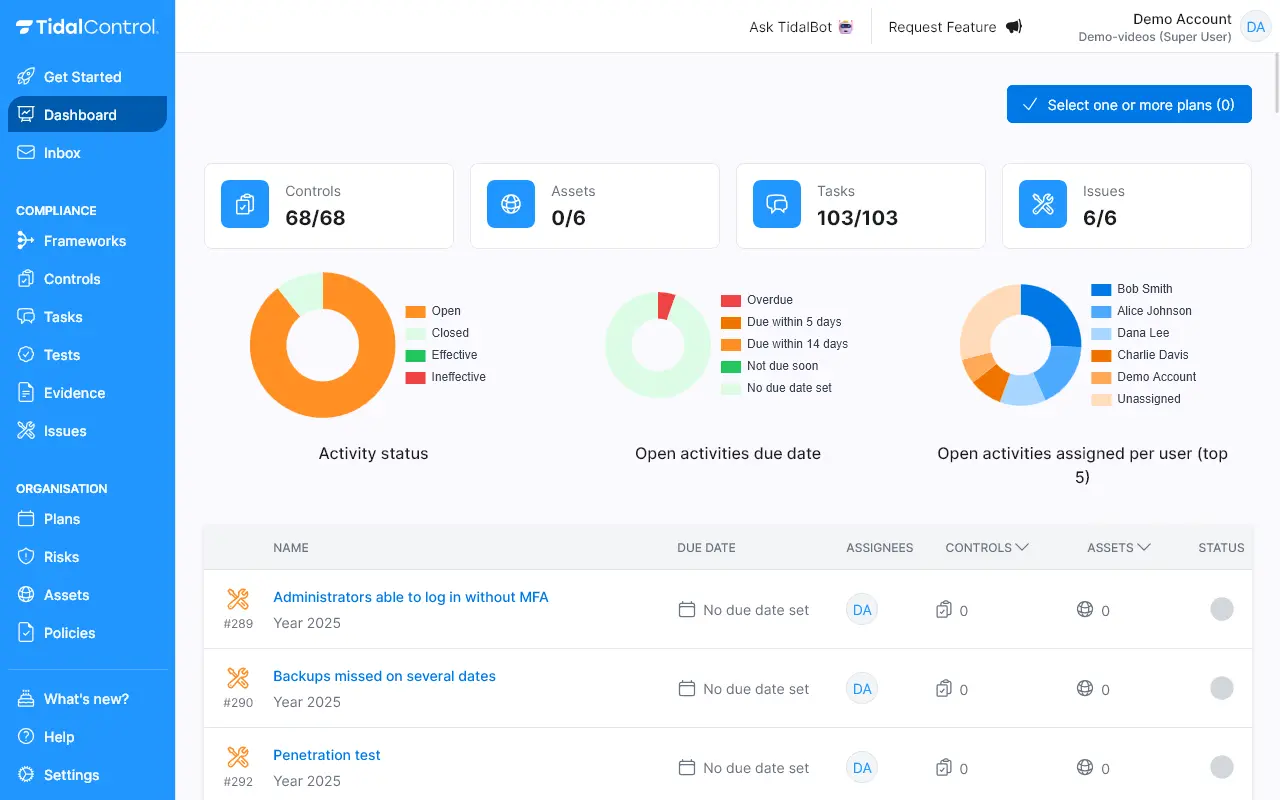
ISO 42001: Building the Foundation for Responsible AI in 2025
title: "ISO 42001: Building the Foundation for Responsible AI in 2025" description: "Discover how ISO 42001 can help your startup establish responsible AI practices, reduce risks, and gain competitive advantage through automated governance." date: "2025-03-18" categories: ["Blog", "AI Governance", "ISO 42001"] imageUrl: "AI-scaled.jpeg" imageCredit: "" published: true nrWords: 837 authors: ["Dennis van de Wiel"]
With AI now woven into the fabric of nearly every business, responsible governance of AI has become a hot topic for potential buyers. ISO 42001 offers startups a practical roadmap to ethical AI that boosts innovation rather than restricting it. And, with the right automation tools compliance can be surprisingly simple.
What is ISO 42001?
Imagine having a safety-conscious culture built around your AI initiatives from day one. That's exactly what ISO 42001 helps establish through its AI Management System (AIMS) framework. ISO 42001 focuses on management principles that apply across different AI technologies, making it adaptable to rapidly evolving innovations.
Is it similar to ISO 27001?
While ISO27001 governs your information security with structured risk management processes, ISO42001 is tailored specifically to AI systems—it applies this familiar structure to your algorithmic decision-making and is not limited to information security, but also covers unique AI challenges like bias and ethical use.
Both standards follow the same proven Plan-Do-Check-Act methodology that's the core of many ISO standards. If you already have such a cycle in place, obtaining ISO42001 certification will be considerably easier for your organisation.

What are the sepcific requirements of ISO42001?
The ISO 42001 standard includes an annex with 38 normative controls for AI systems divided across 10 topics. These controls create a framework that addresses everything from fundamental governance to specific operational aspects of AI implementation.
The 10 topic areas are:
- General - Introduction stating companies can also define their own controls
- Policies Related to AI - Documentation of principles and commitments
- Internal Organization - Roles, responsibilities and governance structures
- Resources for AI Systems - Ensuring adequate capabilities and competencies
- Assessing Impacts of AI Systems - Evaluation of potential risks and benefits
- AI System Lifecycle - Development, testing, deployment and monitoring
- Data for AI Systems - Quality, privacy and appropriateness of training data
- Information for Interested Parties of AI Systems - Transparency for stakeholders
- Use of AI Systems - Guidelines for responsible operation
- Third-Party and Customer Relationships - Managing external AI dependencies
Many of the underlying controls share similarities with ISO27001 requirements, but they're specifically tailored to address the unique characteristics and challenges of AI systems.
Which businesses can benefit from ISO42001 certification?
Any organisation developing, implementing or using AI systems can benefit from ISO42001 certification. For startups offering AI-powered SaaS solutions, certification provides crucial credibility when selling to enterprise clients with strict vendor requirements.
Even startups using third-party AI tools or only providing consultancy services related to AI can benefit by demonstrating responsible governance of these technologies within their operations.
Why Your Startup Should Implement ISO 42001
For growing startups, implementing proper governance early creates foundations that scale with you. Early adoption of ISO 42001 offers three compelling advantages that directly impact your bottom line:
-
You'll position yourself ahead of regulatory requirements like the EU AI Act. Rather than scrambling to comply when regulations tighten (and they will), you'll already have systems in place to adapt quickly.
-
Certification creates meaningful market differentiation. When potential clients evaluate your solution against competitors, demonstrating responsible AI practices often becomes the deciding factor—particularly for enterprise clients with strict vendor requirements.
-
The framework helps identify and mitigate AI-specific risks before they become problems. Issues like algorithmic bias, data privacy concerns, and unintended consequences can damage both your reputation and financial outlook if left unchecked.

Implementing ISO 42001 Without the Headache
Implementing any management system might sound daunting for a lean startup team, but with the right approach, it's entirely manageable.
Start with a simple risk assessment by cataloguing all AI systems within your organisation—including those from third-party vendors. Categorise them based on potential impact and risk to help prioritise your governance efforts.
Form your AI governance team with representatives beyond just technical staff. Including perspectives from legal, ethics, and business to ensure a strong oversight and team buy-in.
Pay particular attention to data governance aspects, as the reliability and ethical sourcing of training data significantly impacts AI system performance and fairness. Establish clear data quality protocols from the beginning.
Automation: The Key to Sustainable Compliance
Here's where things get exciting for resource-conscious startups. Tools like Tidal Control now support ISO 42001 requirements, dramatically reducing the administrative burden of implementation and maintenance.
Our platform automates most aspects of compliance, from risk assessment to evidence collection, helping you build robust AI governance without diverting precious engineering or leadership time. The automated testing features provide real-time insights into your compliance status, with instant visibility into how changes affect your controls.

Next Steps
Ready to build responsible AI practices into your startup's DNA? Book a 30-minute demo to see how Tidal Control can automate your ISO 42001 implementation and help you establish governance that grows with your business.
Written by Dennis van de Wiel, Founder